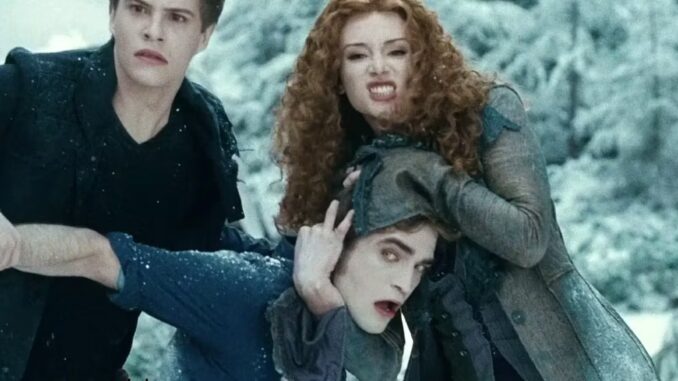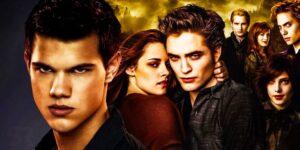
Iconic movie critic Roger Ebert took issue with the earlier Twilight movies too, but he had an obscure, bizarre problem with the underrated Eclipse.
Legendary movie critic Roger Ebert was not a fan of one of the better movies in the Twilight saga, 2010’s Eclipse, and his reasoning for disliking the sequel was stranger than many fans might guess. By and large, critics were not too kind to the Twilight movies. Although the paranormal fantasy series was a blockbuster success in financial terms, in terms of reviews, the Twilight movie adaptations left most critics cold thanks to their self-serious teen romance plotline.
Many critics complain that the saga’s heroine Bella was too passive (a problem avoided by Twilight’s early “badass Bella” script draft) and that the franchise’s lack of action leaves a lot to be desired. Without much in the way of large-scale set pieces, the early Twilight movies were often accused of relying too much on the central performances of their young cast. As such, later Twilight sequels attempted to address this issue by adding more dramatic action to the anodyne source material.

However, some veteran critics were unable to get on board with even the best of the Twilight movies. For example, the iconic critic Roger Ebert found fault with 30 Days of Night director David Slade’s action-forward installment Eclipse. Although Ebert admitted he liked Eclipse better than the first two movies in the series, he also said that the underrated 2010 Twilight movie often felt like an unending conversation between the leads. However, this was a pretty common problem for critics to cite and far from the strangest of Ebert’s quarrels with the sequel. Later in his review, Ebert bizarrely critiqued the mountainous settings of Eclipse, saying the Twilight sequel’s backdrops looked like a Bob Ross painting.
According to Ebert’s review, “Many of the mountain ranges… look suspiciously like landscapes painted by that guy on TV who shows you how to paint stuff like that.” While Ebert also took issue with the sequel’s special effects in general, this was definitely the strangest gripe he had with the movie and arguably the oddest criticism he made of the Twilight series as a whole. Some of Ebert’s other criticisms, such as bemoaning the movie’s lack of violence and death, were more typical. The Twilight movies endeavored to add gore to the sanitized source material where possible, but the franchise still ended up very light on dramatic deaths.
Despite Slade’s addition of some dark and gruesome material to the more mature Eclipse, the movie was was still very harmless for a depiction of vampires fighting werewolves. This had a lot to do with the target demographic of the source novels, teenagers more interested in the romance between the lead characters than the potential for bloody battles. However, the lack of action and stakes (both literal and metaphorical) results in less crossover appeal for the Twilight saga. As a result, the movies were popular among many hardcore fans, who already knew the Denali Coven’s Twilight backstory but won over few new conversions. This did not hurt Twilight’s financial performance as a franchise, but it did mean the series never impressed veteran critics like Ebert.